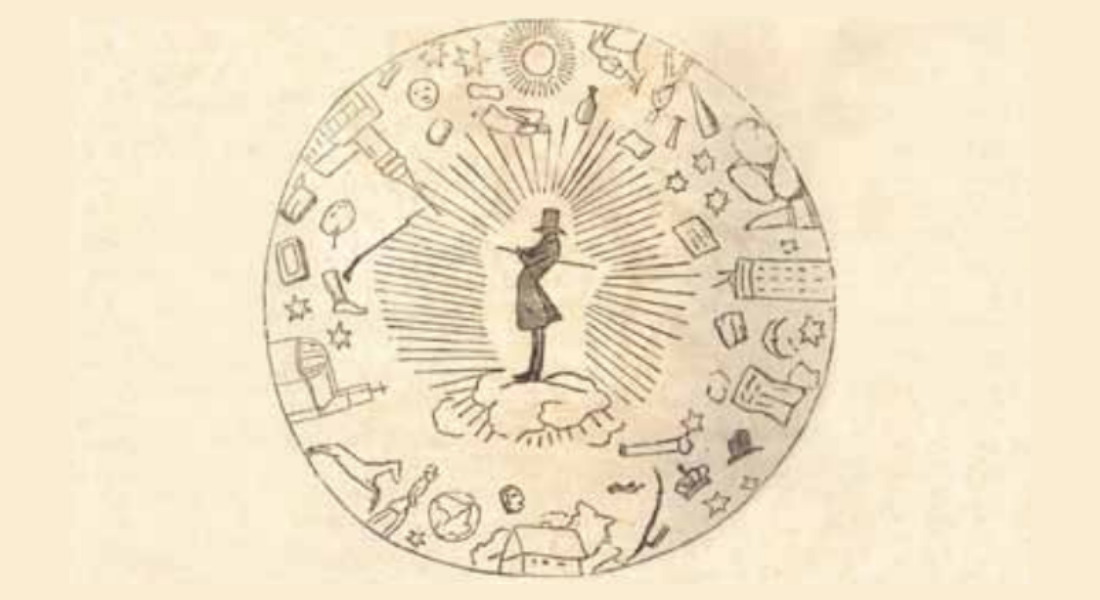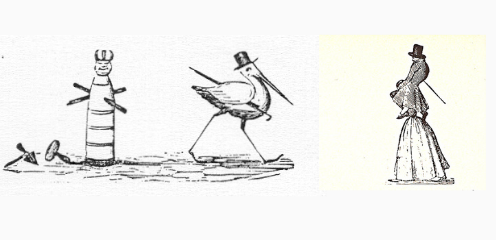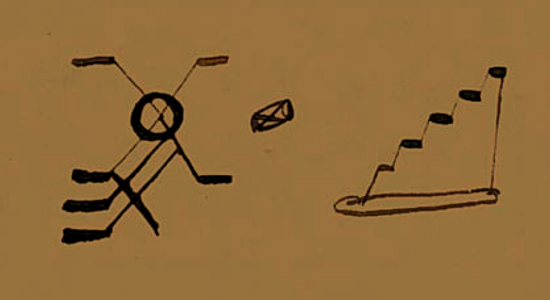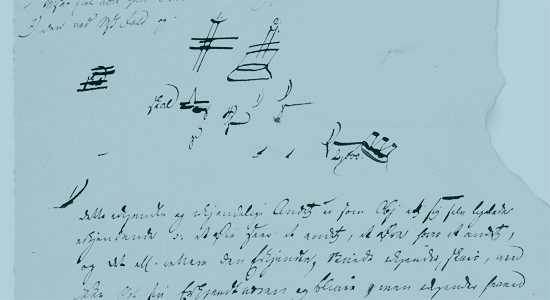The Press and Natural Science
THE CORSAIR

LAUGHTER’S MARTYR
After publishing A Literary Review on March 30, 1846, it was Kierkegaard’s intention to end his activity as an author and seek a position as a priest. The plan was disrupted, however, by the young editor M.A. Goldschmidt and his successful weekly newspaper The Corsair, which assessed the political situation of the day with sophomoric humor and sarcasm, and made fun of all the local pioneers.
The Corsair had praised several of Kierkegaard’s works in glowing terms, which Kierkegaard found inappropriate. He therefore published a lengthy article which ended with the words, “I would like to request that I be chided. The indignity of being immortalized by The Corsair is too much to bear.”
Uneven Pant Legs
Kierkegaard had presumably envisioned an intellectual fight with Goldschmidt and his deputy, author and literary critic P.L. Møller, but ironically, the master of irony had miscalculated. The Corsair answered his call to be “chided” with a series of humiliating cartoon caricatures of him as a frail and hunchbacked oddball with uneven pant legs. The caricature of the master thinker with lopsided pants turned out to be a polemical work of genius, which tripped Kierkegaard up and made a response completely impossible—no one publishes a denial about the length of pant legs.

Kierkegaard as Advertisement
In no time Kierkegaard had become a laughable advertisement for The Corsair. Copenhagen had been a source of his daily “emersion in people,” a provision for inspiration and mental health. It was now transformed to a “barricaded little pit, without proportions, a rotting bog” populated by a screaming mob, whose stares and smirks accompanied the tortured scholar wherever he went. Kierkegaard, who had done everything he could to hide behind pseudonyms, was identified by the masses, who shouted “either-or” and “Søren” at him on the streets. It went so far that his tailor recommended that he find another place to buy his clothes because the negative talk about the pants he’d made for Kierkegaard was hurting the reputation of his business. Kierkegaard’s journals abound with small reports:
"Every butcher boy believes that he’s entitled to insult me on orders issued by The Corsair; the young university students smirk and giggle (…). The least thing I do, even if I merely pay a visit to someone, is mendaciously distorted and repeated everywhere. If The Corsair learns of it, it prints it, and it’s read by the entire population." (Journalen NB7. Source: SKS.dk)
Modern Violence
Kierkegaard’s hard-earned lessons from the “school of abuse” taught him that violence in modern society had not subsided, it had merely become more civilized and had taken on a symbolic character. There are no longer crucifixions; there is laughter instead. Kierkegaard can therefore speak of himself as “laughter’s martyr”:
"In the age of reason, “ridicule” is the most feared of all dangers; in our times a person can easily bear everything but being made a laughingstock, not to mention being exposed to daily ridicule―people shrink more from this danger than from the most torture-filled death." (Journalen NB12. Source: SKS.dk)


